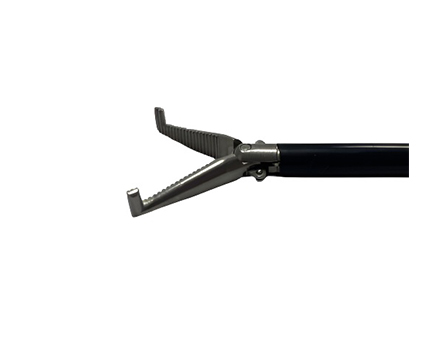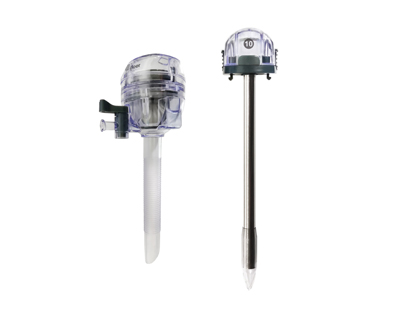Hygiene and Convenience: The Impact of Disposable Laparoscopic Graspers on Infection Control
Redefining Sterility in the Operating Room
In the realm of modern surgery, infection control is paramount, driving the continuous quest for innovations that uphold the highest standards of sterility. Disposable laparoscopic graspers have emerged as pivotal contributors to this pursuit, revolutionizing the landscape of infection control in the operating room.
The Critical Role of Sterility in Surgery
Surgical site infections pose a significant threat to patient well-being, prolonging recovery times, increasing healthcare costs, and potentially leading to severe complications. Maintaining a sterile surgical environment is, therefore, a fundamental aspect of patient safety. Traditional reusable laparoscopic instruments, despite rigorous sterilization processes, carry a residual risk of microbial contamination. In contrast, disposable laparoscopic graspers present a paradigm shift in infection control practices.
Uncompromised Sterility
Disposable laparoscopic graspers are engineered for single-use, eliminating the risk of cross-contamination between patients. The absence of reprocessing procedures ensures that each grasper is used only once, guaranteeing a level of sterility that is difficult to achieve consistently with reusable instruments. This newfound level of sterility is particularly crucial in minimizing the risk of postoperative infections, promoting better patient outcomes.
Convenience and Workflow Optimization
Beyond the realm of infection control, disposable laparoscopic graspers bring an unparalleled level of convenience to the surgical arena. The traditional cycle of decontamination, sterilization, and storage of reusable instruments can be time-consuming and resource-intensive. Disposable graspers simplify this process, streamlining workflow and allowing medical professionals to focus more on patient care.
Time Efficiency in the Operating Room
The convenience factor is most evident in the operating room, where time is of the essence. Disposable laparoscopic graspers, arriving in a sterile condition straight from the packaging, eliminate the need for preoperative instrument preparation. Surgeons can proceed with procedures promptly, reducing overall surgical times. This time efficiency not only benefits patients but also contributes to the optimization of operating room resources.
Challenges and Adaptation
While the benefits of disposable laparoscopic graspers in infection control and convenience are evident, their adoption is not without challenges. Skepticism regarding the economic implications, waste generation, and the environmental impact of single-use instruments must be addressed. However, ongoing innovations in materials and manufacturing processes strive to strike a balance between the advantages of disposability and the need for sustainability.
Transitioning Mindsets
The successful integration of disposable laparoscopic graspers into surgical practices also requires a shift in mindset among healthcare professionals. Training programs and educational initiatives play a crucial role in familiarizing surgeons and operating room staff with the benefits and proper utilization of disposable instruments. As these mindsets evolve, the adoption of disposable laparoscopic graspers is likely to become more widespread.
In the ever-evolving landscape of surgery, the impact of disposable laparoscopic graspers on infection control is transformative. These instruments offer a harmonious blend of uncompromised sterility and unmatched convenience, reshaping the way surgical procedures are conducted. As healthcare professionals increasingly prioritize patient safety and operational efficiency, the adoption of disposable laparoscopic graspers represents a pivotal step forward, promising a future where infection control is not just a standard but a benchmark for excellence in surgical care.



